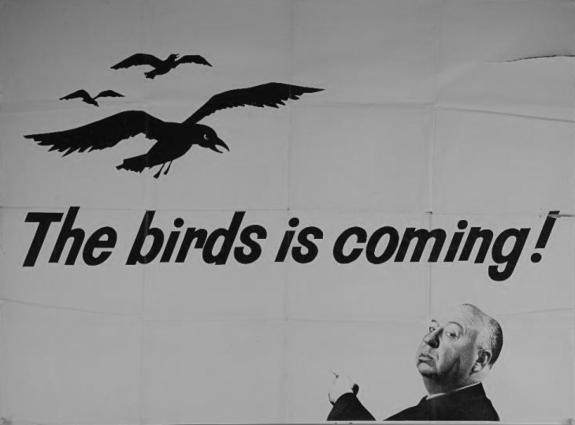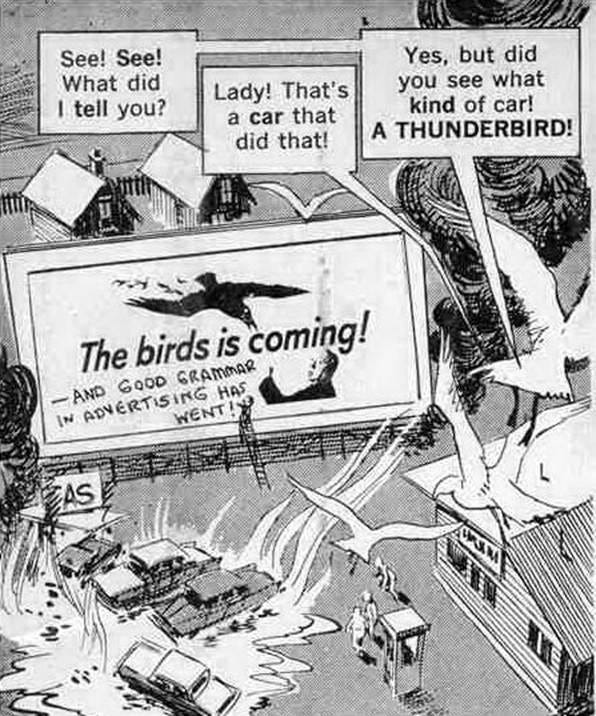1963 was a pretty good year – until 22 November when President Kennedy was shot.
But up until then it wasn’t too bad. I had School Cert under my belt and was working towards UE (University Entrance). This was serious stuff. The school I attended required those of us doing UE to sit the exams. No accreditation first time around. If the outcome was a fail, accreditation was available for the second time. But we first timers had to sit each paper.
And there were so many distractions – in addition to those wearing the uniforms of Dio, St Cuths and EGGS. (I lived in Epsom - rather hard to avoid those “distractions”) The Beatles were hitting their straps and there were some really interesting magazines around.
One in particular came out of New York – a satirical comic book\magazine called MAD.
MAD was launched in 1952 and was founded by editor Harvey Kurtzman and publisher William Gaines. It published and still publishes satire on all aspects of life and popular culture, politics, entertainment, and public figures.
Its format included ad stil includes TV and movie parodies, and satirical articles about everyday occurrences that are changed to seem humorous.
MAD's mascot, Alfred E. Neuman, is usually on the cover, with his face replacing that of a celebrity or character who is being lampooned. From 1952 to 2018, Mad published 550 regular magazine issues.
And there I was, each month, waiting for the next issue.
It was amazing stuff. The artwork was very good. The caricatures of the powerful and famous, especially by artist Mort Drucker, were fantastic. The satire was contemporary. The commentary was amusing, at times risable and at others prompting a full throated laugh out loud.
I enjoyed MAD and continued to read it through University until the early 1970’s when I started reading and subscribing to Rolling Stone.
In March 1963 the movie “The Birds” was released. It was a natural horror-thriller film produced and directed by Alfred Hitchcock, released by Universal Pictures and starring Jessica Tandy, Rod Taylor, Suzanne Pleshette, and introducing Tippi Hedren in her film debut.
Loosely based on the 1952 short story of the same name by Daphne du Maurier, it focused on a series of sudden and unexplained violent bird attacks on the people of Bodega Bay, California, over the course of a few days. The screenplay was by Evan Hunter, who was told by Hitchcock to develop new characters and a more elaborate plot while keeping du Maurier's title and concept of unexplained bird attacks.
While it initially received mixed reviews when originally released, its reputation improved over time and it has since been considered to be one of the greatest horror films of all time.
In 2016, “The Birds” was deemed "culturally, historically, or aesthetically significant" by the United States Library of Congress, and selected for preservation in its National Film Registry.
There was a particularly quirky way of advertising the movie. Posters went up on billboard with the slogan “The birds is coming”
This appalling use of the singular verb with a plural noun provoked amusement and comment – another example of the erosion of the proper use of the English language by Hollywood.
But it worked in that it attracted attention and in terms of brand recognition there was a ready audience when the movie was released.
Not unsurprisingly MAD turned its satirical attention to “The Birds” and ran a strip in October 1963 entitled “For the Birds”. It picked up on some of the main themes of the movie with excellent artwork and some biting lines.
But the frame that I loved the most had a crack at the advertising poster for the movie and I reproduce it below
Graffiti has been added to the poster so that it reads
“The birds is coming and good grammar in advertising has went.”
Brilliant.
But every time I see a badly constructed sentence I think of that poster and did so (hence the article now) when I read the Herald editorial for 13 April 2025.
The editorial is about the futility and absence of logic behind David Seymour’s Treaty Principles Bill.
But this sentence jumped out of the page.
“What the Act Party leader himself has described as an “uneasy conversation” seems inevitable to continue.”
Now the use of the word inevitable in that context is wrong and probably arises from the clumsy construction of the sentence. It would have made more sense if it had been written as follows:
“What the Act party leader has described as an “uneasy conversation” will inevitably continue”
The second example comes from the same editorial – clearly a rushed job if there are two grammatical infelicities in it.
“What is the problem this bill was trying to solve? Who is treated unequal by law today?”
Rather than “unequal” I think the editor meant “unequally”.
What is the problem here? A rushed editorial? A failure to properly proofread? An ignorance of the proper use of the English language?
Certainly that often used escape route – common usage – isn’t available for errors such as these. And that escape route is use by the lazy who cannot be bothered to think before they open their mouths or hit the keyboard.
Although it hasn’t featured in the Herald editorial one problem with the English language that particularly grates is the use of the past tense of the verb “to fit”.
I am probably straying into Ken Grace’s Lingwistics Substack and I hope he will not mind this small trespass upon his turf.
The problem is that writers these days (or maybe the issue lies with editors) seem incapable of using the past tense which is “fitted”. Rather they seem to prefer abominations like “the hand fit into the glove.”
Appalling.






I used to enjoy the cartoons drawn by Don Martin!
Actually, given it was the name of a film, “the Birds is coming” was grammatically correct. There was but one film. You can’t say “a film are coming”. As to the ever increasing “ly” omission, is that not just another example of the ongoing erosion of good English by Americanisms, like the all too pervasive “fit” instead of “fitted”? I could go on! Further damage has been done by the woke induced fear of “he” or “she”, so often now reduced to a decidedly ungrammatical and vague “they”.